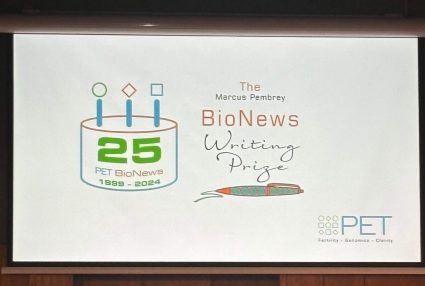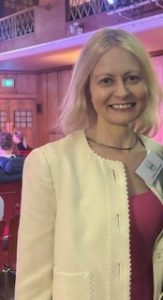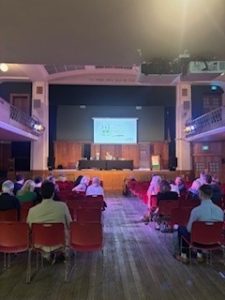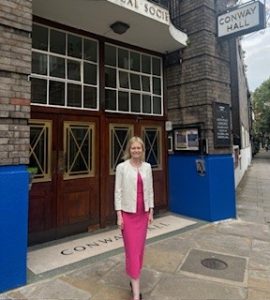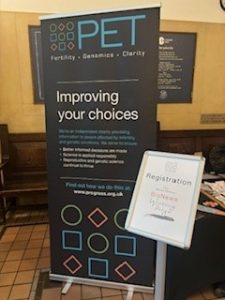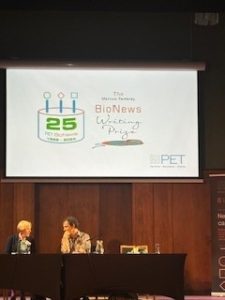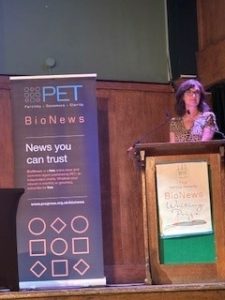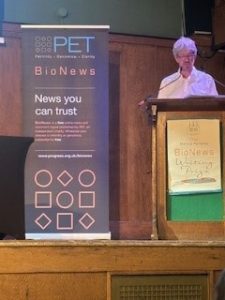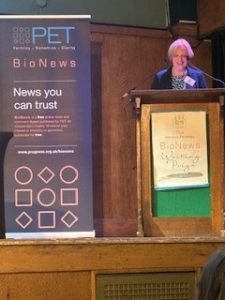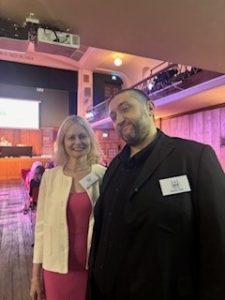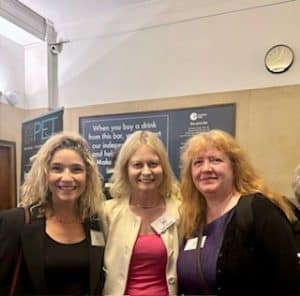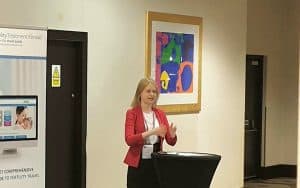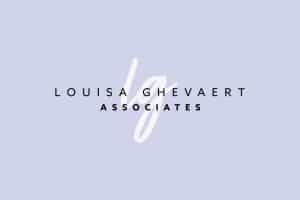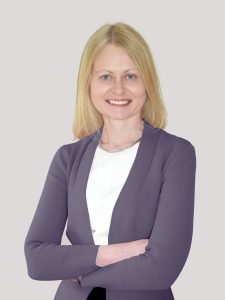5 September 2024
Louisa Ghevaert was pleased to attend BioNews’ 25th Birthday Celebration on 4 September 2024 at the Conway Hall in Red Lion Square, Holborn, London. This invitation-only event was well attended by a community of leading experts and supporters from across the fertility, medical, scientific and academic sectors. This special event included speeches looking at which developments in fertility, genomics and embryo research will have the greatest impact over the next twenty five years, as well as the presentation of the inaugural Marcus Pembrey BioNews Writing Prize.
Images: Louisa Ghevaert, CEO & Founder Louisa Ghevaert Associates
BioNews
BioNews launched as a weekly digital publication in March 1999. Since its launch 25 years ago, BioNews has produced 1,254 editions including over 8,475 news articles and around 2,000 comment pieces from industry experts across the scientific, medical, fertility, legal and academic sectors (including Louisa Ghevaert who has written 15 expert law and policy comment pieces for BioNews since 2009).
BioNews provides impartial and accurate information to people affected by infertility or genetic conditions and provides platforms for them to come together with experts to discuss scientific, ethical, legal and policy developments in these areas. Its mission is to educate and to debate the responsible application of reproductive and genomic science. In doing so, it continues to ensure that better informed decisions are made, science is developed and applied responsibly and reproductive and genetic science continues to thrive.
Image: Sarah Norcross, Director of Progress Educational Trust
Horizon Scanning
Professor Robin Lovell Badge CBE explained that in vitro-derived gametes will have considerable impact on human reproduction and fertility preservation over the next 25 years. He went on to explain that in vitro-derived gametes (known as IVG) are functional lab-created egg and sperm cells which have been created by reprogramming other cells, such as embryonic stem cells or skin cells. Whilst it is still early days, he explained that IVG will have a strong link to fertility preservation, potential applications for research and clinical use (e.g. following stem cell transplants causing infertility or for post menopausal women) and also conservation of species (e.g. the northern white whale). However, the science is not there yet to use IVG cells in clinical applications in humans and more work is still needed to focus on safety, public opinion, consent, ethics and regulation.
Jane Denton CBE explained that whilst the reduction in the UK multiple birth rate following fertility treatment has been a great achievement and is now 4% down from 28% in the 1990’s, there is still work to be done to improve pregnancy outcomes for mothers and babies. She went on to say that further research is needed to look at the impact of the uterine environment and that this work should be a priority. Furthermore, whilst there has been greater openness, awareness and access to donor gametes and sperm in fertility treatment, further research is needed to look at the impact of using donor gametes on life-long parenting and across donor conceived individuals’ lifetimes.
Images: Professor Robin Lovell Badge CBE, Group leader in Stem Cell Biology and Developmental Genetics at the Francis Crick Institute and Jane Denton CBE, Director of the Multiple Births Foundation.
Dr Philip Ball, former editor at Nature and author of numerous books including How Life Works: A User’s Guide to the New Biology, explained that technologies which can manipulate and re-programme cells will have the greatest impact over the next 25 years. He explained that this technology can be used to create “organoids” (clusters of cells which develop into organ-like structures) and “embryoids” (clusters of cells which develop into embryo-like structures) for fundamental research purposes to develop our understanding of the human body. It also has a drug testing application to avoid animal testing. Furthermore, it can be used in gene therapy for treatment and repair purposes (e.g. to grow neurons for nerve damage in the spine). However, advances in this technology raise big ethical questions about how far we should go with this and how this will be regulated since there are no universal guidelines at present. He went on to say that biology is more versatile and adaptive than we have previously given it credit for.
Expert Attendees
Louisa Ghevaert was delighted to network with Sandy Starr, Deputy Director of Progress Educational Trust who hosted this event. Louisa was further delighted to catch up with Professor Cathy Herbrand, expert in Medical and Family Sociology and the Deputy Director of the Centre for Reproduction Research and Dr Kriss Fearon, Research Fellow in Health and Life Sciences at the Centre for Reproduction Research at De Montfort University and many others who have all contributed so much to the fertility sector to celebrate BioNews’ 25th birthday.
Images: Louisa Ghevaert, CEO & Founder of Louisa Ghevaert Associates and Sandy Starr, Deputy Director of Progress Educational Trust, Professor Cathy Herbrand in Medical and Family Sociology and the Deputy Director of the Centre for Reproduction Research and Dr Kriss Fearon, Research Fellow in Health and Life Sciences at the Centre for Reproduction Research at De Montfort University
It was a memorable evening attended by a community of dedicated experts who all came together to celebrate BioNews’ work over the last 25 years. Happy Birthday BioNews and we wish you every success over the next 25 years and many congratulations to the winners of the inaugural Marcus Pembrey BioNews Writing Prize.
Need Advisory & Consultancy, a Fertility, Surrogacy or Modern Family Lawyer?
Click here to find out more about our specialist advisory and consultancy to effectively navigate fertility, genetics/genomics and health, pre-conception, pregnancy, birth, general and family life, reproductive and biological legacy, policy and governance.
The creation of modern families formed through assisted conception, fertility treatment, donor conception and surrogacy and the evolving nature of parenthood, genomics and assisted reproductive technologies raise complex legal and practical issues. These legal and wider issues need to be navigated with care so that fertility patients, parents, donor conceived individuals, donors and surrogates can make informed decisions about the implications and outcomes of modern family building and family life.
Click here to find out more about how our specialist fertility and assisted reproduction law expertise can help you.
Images: Louisa Ghevaert, CEO & Founder Louisa Ghevaert Associates
